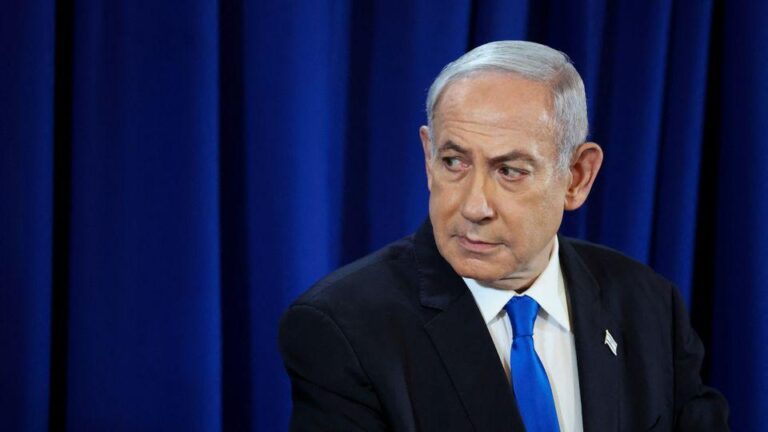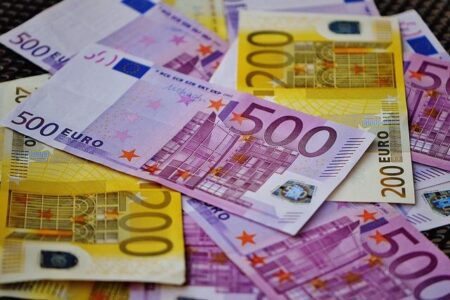French President Emmanuel Macron has announced plans to recognize a Palestinian state, a move that is expected to further strain France’s already tense relations with Israeli Prime Minister Benjamin Netanyahu. The decision, reported by Reuters, marks a significant shift in France’s diplomatic stance amid ongoing Middle East conflicts, highlighting growing international frustration with stalled peace efforts. Macron’s statement signals a bold attempt to revive dialogue on Palestinian statehood, but it is likely to provoke strong opposition from Israel and its allies.
Macron’s Bold Call to Recognize Palestinian State Challenges Netanyahu’s Policies
French President Emmanuel Macron has taken a decisive step by announcing France’s intention to recognize the State of Palestine, directly challenging the long-standing policies of Israeli Prime Minister Benjamin Netanyahu. The move underscores growing frustration within Europe over the stalled Israeli-Palestinian peace process and signals a shift towards more assertive diplomatic engagement in the region. Macron emphasized that this recognition is not only a symbolic act but also aimed at reinvigorating international efforts to broker a viable two-state solution.
The announcement has elicited a swift and sharp response from Netanyahu’s administration, which rejected the gesture as counterproductive to peace efforts. Macron, however, defended France’s position by highlighting key reasons:
- Support for Palestinian self-determination as a foundation for lasting peace
- Pressure on Israel to halt settlement expansions
- France’s commitment to international law and UN resolutions
Analysts suggest that this move could prompt other European countries to reconsider their stances, potentially reshaping the diplomatic landscape of the Middle East. Below is a summary comparison of France’s stance with Israel’s current policy:
| Aspect | France (Macron’s State Recognition) | Israel (Netanyahu’s Policy) |
|---|---|---|
| Palestinian State Status | Official recognition | Non-recognition |
| Settlement Expansion | Calls for halt | Continued support |
| Peace Process Approach | Two-state solution promotion | Conditional negotiations |
| International Law | Strict adherence | Selective interpretation |
Implications for Franco-Israeli Relations and Regional Stability
President Macron’s statement on recognising a Palestinian state marks a profound shift in France’s diplomatic posture, stirring notable tensions with Israeli Prime Minister Netanyahu. This move not only challenges the status quo of Franco-Israeli relations but also signals France’s intention to play a more assertive role in Middle Eastern geopolitics. The decision risks straining bilateral cooperation in areas such as intelligence, security, and economic partnerships, potentially complicating longstanding alliances built on shared strategic interests. Moreover, Netanyahu’s reaction underscores the delicate balance both nations must maintain amidst rising regional complexities.
- Diplomatic strain: Increased rhetoric and reduced coordination between Paris and Jerusalem.
- Regional ripple effects: Influence on peace negotiations and alignment of Arab states with European policies.
- Security concerns: Potential recalibration of military collaborations amid shifting political narratives.
The implications extend beyond bilateral relations, introducing fresh dynamics into an already volatile regional landscape. France’s endorsement of Palestinian statehood could embolden other European nations to revisit their Middle East policies, potentially creating a bloc advocating for renewed peace talks under a more balanced framework. This development might also impact the power play among Gulf states, Iran, and other key actors, more attuned now to Western positions on Palestinian sovereignty. While the path toward regional stability remains fraught, Macron’s declaration undeniably reshapes dialogue possibilities, nudging stakeholders toward re-evaluated alliances and diplomatic strategies.
| Aspect | Potential Impact | ||
|---|---|---|---|
| Franco-Israeli Security Ties | Possible decrease in intelligence sharing | ||
| European Union Policy |
| Aspect |
Potential Impact |
|
| Franco-Israeli Security Ties | Possible decrease in intelligence sharing | ||
| European Union Policy | Potential alignment towards supportive stance on Palestinian statehood | ||
| Middle East Peace Negotiations | Renewed momentum or shifts in negotiation frameworks | ||
| Regional Alliances | Re-evaluation of partnerships especially among Arab Gulf states and Iran |
Summary:
President Macron’s recognition of a Palestinian state represents a significant change in France’s international policy, particularly impacting its complex relationship with Israel. This decision introduces possible diplomatic friction, especially with Israeli Prime Minister Netanyahu, and may lead to reduced cooperation between the two countries in fields such as intelligence and security. On a broader scale, this move is likely to influence European Union policies on the Middle East and could encourage other European nations to adopt a more balanced approach toward Palestinian statehood.
The reverberations of this recognition extend to the regional geopolitical fabric, affecting peace negotiations and potentially altering alignments among Gulf states, Iran, and other influential players. While it raises uncertainties and challenges, Macron’s statement reopens possibilities for dialogue and may promote renewed efforts towards a more stable and equitable peace process.
If you need any further information or a detailed analysis about any specific aspect,
Strategic Recommendations for European Diplomacy Amid Heightened Tensions
In navigating the escalating tensions surrounding the Israeli-Palestinian conflict, European diplomacy must adopt a multifaceted approach that balances assertiveness with prudence. France’s bold move to recognize a Palestinian state underlines the urgency for the European Union to consolidate a unified stance that promotes dialogue rather than division. Key diplomatic initiatives should prioritize:
- Strengthening multilateral engagement: Leveraging EU institutions to coordinate cohesive policies that support peace negotiations.
- Enhancing conflict de-escalation channels: Establishing continuous communication with all relevant actors to mitigate flare-ups.
- Promoting humanitarian aid: Increasing support for Palestinian civil society without compromising diplomatic neutrality.
To operationalize these objectives, a clear framework is necessary to guide European actions in both the short and long term. The table below outlines a strategic roadmap that emphasizes balanced recognition, pragmatic diplomacy, and increased collaboration with international partners, including the United States and key Arab states.
| Strategic Pillar | Action Steps | Expected Outcome |
|---|---|---|
| Diplomatic Recognition | Promote conditional recognition tied to peace progress | Encourage constructive negotiations, reduce unilateral decisions |
| Conflict Mediation | Initiate EU-led peace talks with equal representation | Broaden dialogue inclusivity, reduce polarization |
| Humanitarian Support | Scale up aid to humanitarian projects on the ground | Alleviate suffering, maintain EU moral standing |
| International Collaboration | Strengthen partnerships with US, Arab League, and UN | Amplify diplomatic leverage, align global peace efforts |
In Summary
As tensions continue to simmer in the Middle East, President Macron’s move to advocate for the recognition of a Palestinian state marks a notable shift in international discourse, directly challenging longstanding Israeli positions and upsetting Prime Minister Netanyahu. This development underscores the growing complexities of diplomatic efforts in the region, as global leaders grapple with balancing geopolitical interests, historical grievances, and the pursuit of lasting peace. The coming months are likely to reveal how this bold stance by France will influence both regional dynamics and broader international relations.




